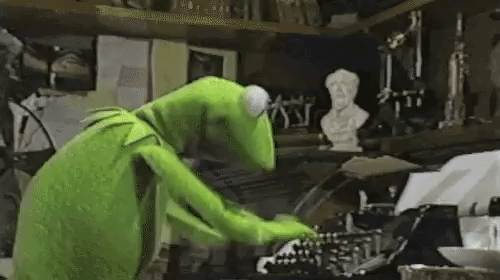User:Max Lehmann/RWR
Reading «↔» Research methodologies «↔» Writing
Session 1 Intro
- Introductiton to general course structure
- Introduction to Trimester goal: Production of a reader - concering speculative interfaces (also in connection to synthesizers)
Session 2
- Review of the work done so far
- Discussing progress on Special Issue X
- Task: Write a 150 word text about a previous pieces of work, regarding the what, how and why (twice)
- Get feedback on your text (beeing silent yourself) by two readers
- Adjust text according to the feedback - get rid of the "what, how, when": Let text stand on its own
Session 3
- What kind of reader do we want to produce as an outcome for the seminar?
- Discuss what will be our concept for the LFP - Special Issue X?
- What does every individual want to do?
- One inerface or several ones?
- Open the blackbox - see how it works
- Modularity - Interconnectivity
- The meaning of underlaying language
- Making the interface accessible
- Who are we doing it for?
- What preconceptions are we encoding?
- More notes on the Pad (see below)
- The whole project: Who? What? How? Why?
- Summarize text red before Douglas Rushkoff - Program or be programmed
Session 4
- Recap of recent process:
- I am working on: A gesture controllable (big gesture) polyphonic audio module
- I have been reading and annotating „Program Or Be Programmed“ by Douglas Rushkoff which is about the impact of digital technology on our society and recommendations on how tot avoid the negative.
- As well as „Speculative Everything“ by Anthony Dunne & Fiona Raby - especially ch.4: „Consuming Monsters: Big, Perfect, Infectious“ which is about using speculative design to debate potential ethical, cultural, social & political implications
- On Impact Festival I was struck by the talk of Simon Dogger http://www.simondogger.nl/ a blind designer about his tool „Emotion Whisperer“ which analyses body language and converts it to a tangible sensation.
- This all connects in as a designer talking responsibility in contributing to a positiv change in society, politics and culture from which all kinds of differently abled people benefit in a way that enhances the options of participation and makes certain fields more accessible.
- Introduction to the Bootleg Library and uploading texts we have been reading
- Discussing the synopses and annotations made so far in small groups.
- Discussing the results as a whole group.
Literature
- Hanna Ahrend: A Report on the Banality of Evil
- Walter Ong: Orality and Literacy
- Liz Lerman: Critical Response Process
- Douglas Rushkoff - Program or be programmed
- Anthony Dunne and Fiona Raby - Speculative Everything Design, Fiction, and Social Dreaming
Links
Pads
- http://pzwiki.wdka.nl/mediadesign/Methods_xpub
- https://pad.xpub.nl/p/methodsSeshOne
- https://pad.xpub.nl/p/InterfaceTextsMethods
- https://pad.xpub.nl/p/Wed9OctMethods
- https://pad.xpub.nl/p/12-11-19InterfaceReader
- https://pad.xpub.nl/p/XpubAnnotations13-11-19

